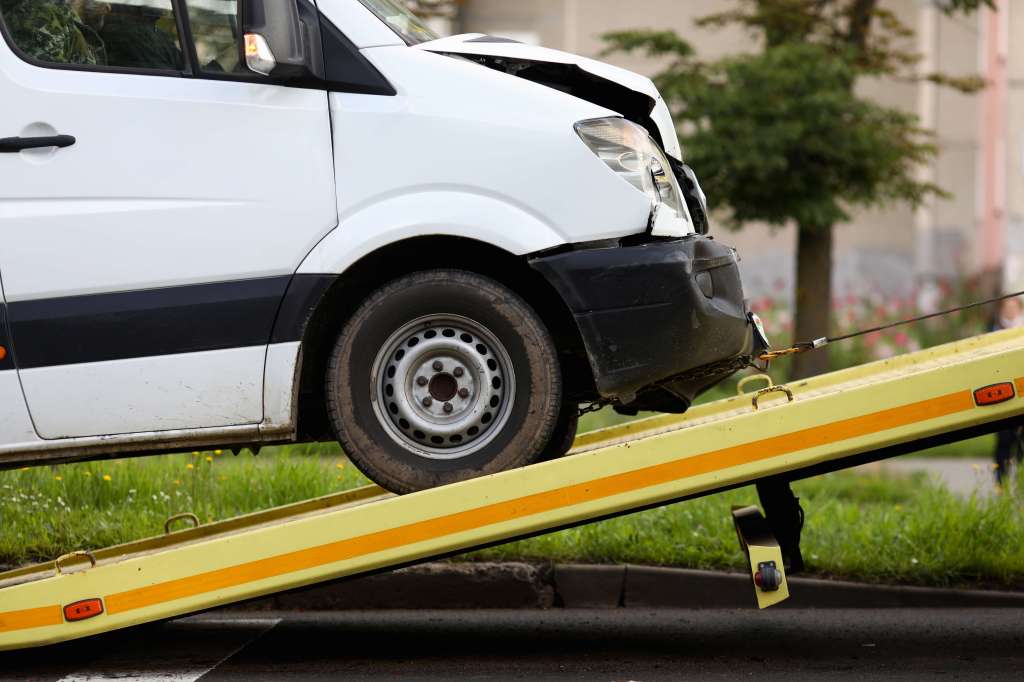You’ll usually come across comprehensive and third party insurance for the first time when choosing car insurance. Understanding the difference between the types of vehicle cover can be confusing – but it’s essential to get it right.
To put your mind at ease and make sure you’re covered if there’s an accident, it’s important to choose the right insurance. Read on to see the differences between covers and find out what’s best for your business.
What is comprehensive insurance?
Comprehensive insurance is a type of cover you choose for your vehicle. It’s sometimes called fully comprehensive because it tends to cover most kinds of incidents with your vehicle.
Comprehensive insurance covers yours and somebody else’s vehicle if it’s damaged in a collision.
What does comprehensive insurance cover?
These scenarios will typically be covered in most comprehensive insurance policies:
- medical expenses for you, your passengers, and third parties
- accidental damage to yours or somebody else’s vehicle
- damage to someone else’s property as a result of a collison
- cover for personal belongings that are stolen or damaged
- repair to your windscreen
- damage to your vehicle from fire
Can I drive another car with comprehensive insurance?
It’s important to understand that you’re not insured to drive other people’s vehicles with standard comprehensive cover.
Drive other cars (DOC) insurance is an additional cover that allows you to drive other vehicles but it isn’t on the majority of comprehensive insurance policies. It’s also designed for emergencies like driving someone to the hospital, rather than consistent use.
If you want to regularly drive another vehicle, it might be worth becoming a named driver on the insurance policy for that vehicle.
What is third party insurance?
Third party insurance is the most basic level of vehicle insurance. It covers damage to someone else’s vehicle if you’re involved in an accident, but won’t cover losses on your side. By law, you need to have at least third party insurance to drive any vehicle on the road.
What does third party insurance cover?
Third party insurance covers the other person involved in an accident. Usually, the other person will have the following things covered:
- the cost of repairs to their vehicle
- medical expenses for a third party
- damage to a third parties property
Your insurance provider is required to compensate the other party involved in the accident, even if it’s your fault. It’s important to remember that your vehicle won’t be covered with this kind of policy.
Third party, fire, and theft
There’s also a mid-level cover called third party, fire, and theft, which provides all of the standard third party cover, as well protection if your vehicle is:
- stolen and can’t be recovered
- damaged during an attempted theft
- damaged by fire, whether it’s deliberate or accidental (if you were the victim of arson, you’d need to report it to the police so you can give your insurer a crime number)
Bear in mind that there are limitations to the cover you get from third party insurance and you won’t be covered for the following:
- damage to your own vehicle in an accident that was your fault, you’ll be responsible for the repairs
- collision-related damage to your personal property – if your phone gets broken, for example
- cost of repairs or replacements if you leave your vehicle unsecured – like leaving it unlocked or with the window open, for example
- medical costs if you’re injured in an incident
Comprehensive vs third party insurance
It can be difficult to assess what cover works best for you. Something to bear in mind is that third party cover is the simplest type of insurance you can get.
With comprehensive cover, you can add on extra benefits like breakdown cover and zero depreciation cover. This isn’t an option with third party cover.
And there’s also a difference in price that’s worth considering.
Is third party insurance cheaper than comprehensive insurance?
Not necessarily. According to Gocompare, the average cost of third party insurance is £606 a year while comprehensive cover is £454 a year.
The price of either level of cover depends on the variety of things. The price is based on the following:
- your job or trade
- where you live
- annual mileage
- the amount of voluntary excess you pay (the amount you’re willing to pay towards any claim you make on your insurance)
- vehicle modifications
- where your vehicle is parked overnight
- your age
- your driving history, including any no-claims discounts
- any named drivers onto your policy (insuring someone else to drive the vehicle)
Are you more likely to use comprehensive or third-party insurance? Let us know in the comments below.
More useful articles
- Ultimate guide to ULEZ
- Guide to business car leasing
- Are electric vehicles worth it for your business?
- What does business van insurance cover?
Ready to set up your cover?
As one of the UK’s biggest business insurance providers, we specialise in public liability insurance and protect more trades than anybody else. Why not take a look now and build a quick, tailored quote?
Тихон Купревич/stock.adobe.com

This block is configured using JavaScript. A preview is not available in the editor.